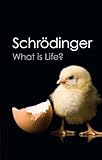Erwin Schrodinger
Erwin Rudolf Josef Alexander Schr√ɬ∂dinger (/√čňÜ√ä∆íro√ä҆d√Ȭ™√Ö‚ÄĻ√Č‚ĄĘr/; German: [√čňÜ√Č‚Äļ√ä¬Āvi√謟n √čňÜ√ä∆í√ä¬Ā√ɬł√謟d√Ȭ™√Ö‚ÄĻ√Ȭź]; 12 August 1887√ā¬†√Ę‚ā¨‚Äú 4 January 1961), was an Austrian physicist who developed a number of fundamental results in the field of quantum theory, which formed the basis of wave mechanics: he formulated the wave equation (stationary and time-dependent Schr√ɬ∂dinger equation) and revealed the identity of his development of the formalism and matrix mechanics. Schr√ɬ∂dinger proposed an original interpretation of the physical meaning of the wave function and in subsequent years repeatedly criticized the conventional Copenhagen interpretation of quantum mechanics (using e.g. the paradox of Schr√ɬ∂dinger's cat). In addition, he was the author of many works in various fields of physics: statistical mechanics and thermodynamics, physics of dielectrics, color theory, electrodynamics, general relativity, and cosmology, and he made several attempts to construct a unified field theory. In his book What Is Life? Schr√ɬ∂dinger addressed the problems of genetics, looking at the phenomenon of life from the point of view of physics. He paid great attention to the philosophical aspects of science, ancient and oriental philosophical concepts, ethics and religion. He also wrote on philosophy and theoretical biology. Continue Reading »
The above description is from the Wikipedia article on
Erwin Schrodinger, licensed under
CC-BY-SA 3.0. A full list of contributors can be found
here.
